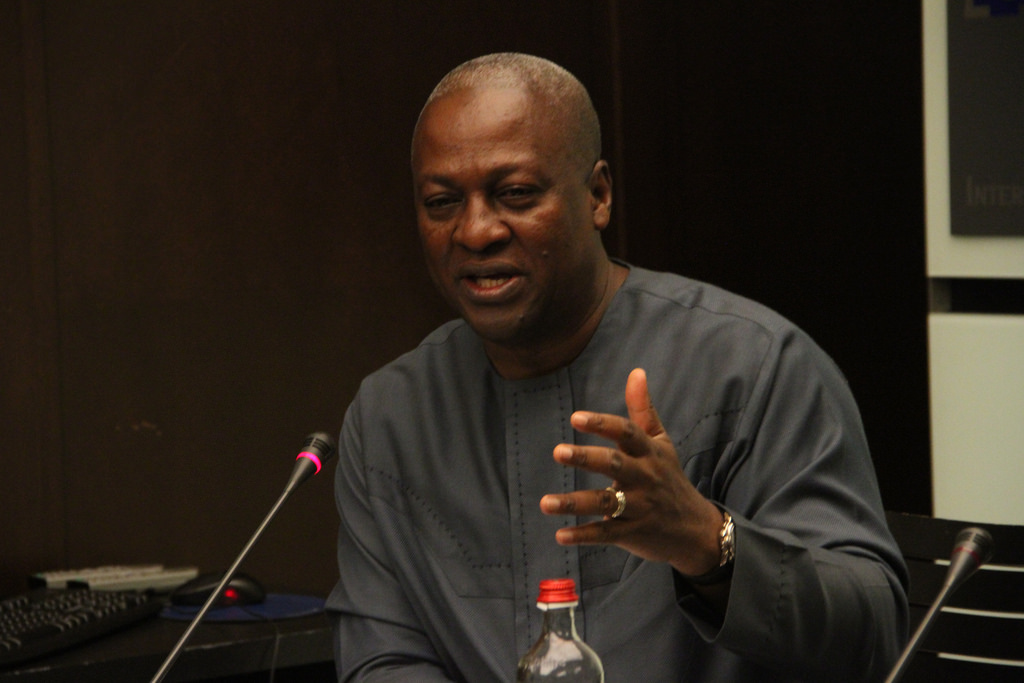Ghana is to set up a staging post in the capital, Accra, to serve as the central point for sending vital medical supplies and personnel to Ebola-affected countries in West Africa.
The Chairman of ECOWAS, President John Dramani Mahama, who announced this, said this had been necessitated by the travel restrictions and closure of borders that had isolated and ostracised countries currently battling the pandemic.
Mr Mahama said he had directed the Ghana Armed forces (GAF) to collaborate with international health partners like the World Health Organisation (WHO) and the West Africa Health Organisation (WAHO) to bring the project on board as soon as possible.
The President was opening the 5th extraordinary meeting of the assembly of ECOWAS Health Ministers in Accra yesterday.
The meeting was devoted to tackling Ebola, which continues to take a toll on the sub-region with over 1,400 people killed so far.
It was preceded by a two-day meeting of epidemiological, surveillance and disease control experts from ECOWAS countries. The purpose was to enable them to share their views on how to improve their strategies for fighting Ebola in West Africa.
Negative reactions
President Mahama, who called the ministers’ meeting in his capacity as ECOWAS chairman, took a serious view of the panic reactions to the disease and said these were worsening the situation in the affected countries.
“Some have placed bans on vessels entering the affected countries. This, combined with cancellation of flights to the countries, is creating difficulty in sending vital supplies to the countries. This is negative,” he said.
Because of the flight restrictions, the health ministers in those countries could not attend the Accra meeting.
The President pointed out that excessive travel restrictions and border closure would not only affect the countries currently fighting the disease, but the entire sub-region as well.
The ECOWAS chairman described Ebola as a crisis that required the concerted efforts of the sub-regional states and the international community to fight it.
Nonetheless, he expressed optimism that Ebola would surely be defeated one day in West Africa.
Sierra Leone, Nigeria, Liberia and Guinea are the four countries in West Africa where cases have been recorded and their governments have come up with initiatives to combat the spread of the virus.
“They need our support and solidarity in these trying moments,” President Mahama stressed, while acknowledging the support of the international community.
The President paid tribute to the doctors and other health personnel who had lost their lives in the line of duty as a result of the disease and said the best way of honouring them was to rally all available resources to control the virus in the shortest possible time.
Home
Turning his attention home, President Mahama said although no case had been recorded in Ghana, the government was committing enormous resources to the scaling up of its strategies to prevent any eventualities.
For instance, 10,000 protective equipment had been procured for doctors; public education had been intensified and schools directed to prepare their Ebola preparedness plans before the reopening of schools in September.
ECOWAS President
The President of the ECOWAS Commission, Mr Kadre Desire Ouedraogo, saluted health workers in the ECOWAS countries who continued to perform their duties to save lives.
While commending Nigeria for contributing $3.5 million to the Ebola Fund set up by ECOWAS, he appealed to other member states and the international community to make contributions to it to help save lives.
“Given the desperation of our people, we need to scale up our mobilisation against the disease,” he added.
World Health Organisation
The Africa Regional Director of WHO, Dr Louis Sambo, asked African countries to stop overlooking the WHO guidelines for the containment of the disease and said the situation could worsen the plight of the effected countries.
He also said WHO had signed an agreement with the African Development Bank for the release of $60 million to beef up immediate supplies and other related action in the troubled countries.
In his welcome address, the Minister of Health, Dr Kwaku Agyemang Mensah, called on his colleagues in the sub-region to rise up to the challenge.


